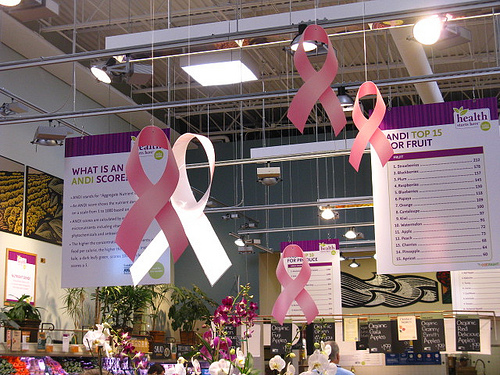Breast cancer overawareness

This weekend, the New York Times Magazine carried a long and thought-provoking piece about our harmful national obsession with mammograms. This particular article was written by author Peggy Orenstein, who is herself a breast cancer survivor. I also recommend the article "Welcome to Cancerland" by Barbara Ehrenreich, who is also a breast cancer survivor. In the flood of sanctimonious pink ribbon campaigns, these two articles offer a refreshing dose of realism and scientific data.
For every one woman whose cancer is caught early, 10 healthy women get put through the cancer-treatment ringer for a false positive. Screening also catches cancers (like ductal carcinoma in situ, DCIS) which have been going undetected and unharmful in women for ages. And finally, the most dangerous forms of breast cancer are rarely caught by mammograms because they pop up and spread so quickly, it often happens in between screenings. Even if these cancers are caught in a mammogram screening, little can be done medically speaking to improve the outcome.
Mammograms turn out to be too effective at their task: Between the overdiagnosis and misdiagnosis risks, not to mention the increased radiation exposure from the screenings themselves, you start to wonder whether anyone should ever be getting a mammogram.
Meanwhile, marketing campaigns and organizations like the Susan G. Komen foundation have been busy aggressively marketing the pink ribbon. They rake in millions of dollars of sales per year, based on women's fears. Only 16 percent of the Komen Foundation's budget actually goes toward cancer research. If any single organization can be to blame for the proliferation of mammograms in America, it's the Komen Foundation, which has successfully managed to instill terror into its primary demographic.
How much terror? Enough that every year, thousands of women who receive low threshold cancer diagnoses choose to get discretionary mastectomies in an attempt to "get ahead of the disease."
Image courtesy Flickr/srqpix

0 comments